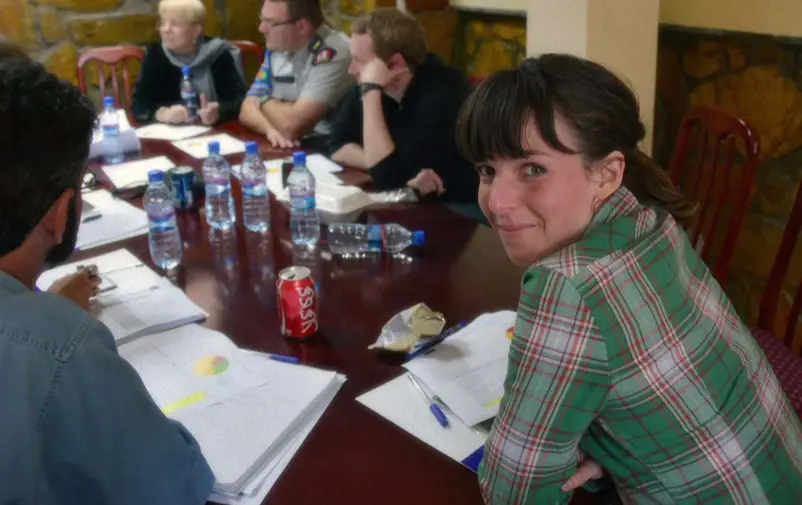
The 1325 Scholarship was established in memory of gender equality expert and peacebuilder Zaida Catalán.
The Taliban’s resumption of power in Afghanistan in August 2021 ended one of the most ambitious externally driven state building projects since the end of the Cold War. The fall of the Western-backed Afghan government shocked public opinion in the West, but it should not have shocked those who followed the situation in Afghanistan closely. This paper argues that Afghanistan should serve as a stark warning for the future of the SSR concept in´conflict-affected countries. If unheeded and a reimagining of SSR implementation is not undertaken, the SSR model will likely find its way into the policy dustbin.
Security and political conditions in the country had been deteriorating for several years amid declining external support and attention. The US deal with the Taliban in February 2020 that facilitated the withdrawal of US troops from the country merely set in motion the final phase of the conflict. A closer look at the legacy of one of the centrepieces of the state-building project, security sector reform (SSR), shows how flawed programming placed the Afghan state on a precarious foundation from the beginning.
The Afghan SSR experience yields important lessons for the future of the SSR concept in other conflictaffected countries, including the need for a more rigorous and systemic approach to assessment, monitoring, and evaluation; the necessity of investing more donor political capital to facilitate progress; the importance of prioritizing access to justice; and the need to never lose sight of political and economic sustainability in programming.
Rather than show the bankruptcy of the SSR concept, Afghanistan has demonstrated the need for a rethinking of how it is applied in the field. There is a need for innovation in how to address thorny issues such as the engagement of non-state security and justice actors; the fostering of cooperation with regional states on shared security and governance challenges; and the development of new models of SSR missions that can strike the right balance between technical and area expertise to better contextualize reforms.
MORE FROM HOME
Are you a young peacebuilder at the beginning of your career with a strong commitment to women, peace and security? Do you have experience working in this field in the Democratic Republic of Congo or Afghanistan and want to take your commitment to the next level? Then you have the opportunity to apply for the 1325 scholarship for 2026.
2025-11-06 15:30FBA has both increased and adapted its work in Ukraine in the wake of Russia's invasion.
FBA in UkraineKlara Grenhagen works as a specialist at FBA's Africa unit with a focus on dialogue, reconciliation and peace processes.
More about our expertsFBA is part of Sweden’s development aid within the area of peace and security
Read more about the countries where we work